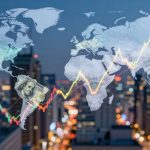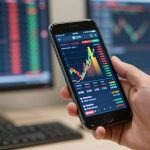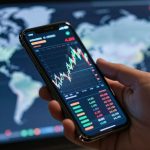Could a single day of no spending bring corporate America to its knees? The Economic Blackout, a 24-hour consumer boycott sweeping the U.S., aimed to do just that. With major brands like Amazon, Walmart, and Target in the crosshairs, this protest against inequality and DEI rollbacks went viral. But did it actually work?

The Economic Blackout refers to a 24-hour consumer spending boycott that took place in the United States on 28 February 2025, with additional boycotts planned for future dates, including 28 March. Organised by activist group The People’s Union USA, the protest encouraged Americans to refrain from all purchases for a full day.
The movement aimed to challenge the economic influence of large corporations and wealthy individuals, with many participants protesting against the Trump administration’s rollback of diversity, equity, and inclusion (DEI) policies. While the boycott gained significant traction on social media, economic analysts regarded its measurable impact as inconclusive.
Background
The Economic Blackout emerged amid a wave of consumer activism in early 2025, particularly concerning corporate DEI policies. Following President Donald Trump’s elimination of federal DEI programmes, several major companies scaled back their diversity initiatives. This led to public backlash, including boycotts targeting retailers such as Target, which had previously emphasised DEI commitments in its marketing strategy.
In response, Reverend Jamal Bryant, an Atlanta-based pastor, organised a 40-day boycott of Target through the website targetfast.org, set to begin on 5 March 2025 (Ash Wednesday) and continue through Lent. Separately, the National Action Network, led by Reverend Al Sharpton, announced plans to identify two companies for boycotts within 90 days, focusing on businesses that had abandoned diversity pledges. Sharpton argued that while the federal government could dismantle DEI programmes, consumers still held power through their spending choices.
Organisation
The Economic Blackout was initiated by The People’s Union USA, a group founded by John Schwarz, a Chicago-based meditation instructor and convicted sex offender. The organisation described itself as politically independent, prioritising the interests of working-class Americans. Schwarz framed the boycott as a protest against corporate exploitation and economic inequality, calling it a “warning shot” to corporations that prioritised profits over fair wages and workers’ rights.
The boycott ran for 24 hours, starting at midnight EST on 28 February 2025. Participants were instructed to avoid all consumer spending, including in-store purchases, online shopping, fast food, and fuel purchases. For essential items, organisers recommended supporting small local businesses and using cash instead of electronic payments. Some supporters also encouraged skipping work if possible.
The movement gained momentum on social media, with endorsements from public figures such as former U.S. Secretary of Labor Robert Reich and celebrities like author Stephen King, who posted on Bluesky: “Don’t buy stuff on February 28. Money’s the only thing these dicks understand.” Actors Bette Midler and John Leguizamo also voiced support.
Google search data showed a sharp increase in queries for “economic blackout” in the days leading up to the event. Additionally, activist groups such as Third Act promoted the boycott on their websites, particularly in Oregon and Texas.
Boycotts and public participation
Many participants documented their involvement on social media, sharing alternatives to spending, such as brewing coffee at home, packing lunches, and buying necessities in advance. The boycott aligned with another online trend, “No Buy 2025”, which encouraged reduced consumerism throughout the year.
Some supporters framed the boycott as part of a broader effort to shift spending away from companies that had retreated from DEI policies, such as Amazon, Walmart, and Target, in favour of businesses like Costco, which maintained its diversity programmes.
Following the first boycott, The People’s Union USA announced another Economic Blackout for 28 March 2025, along with targeted week-long boycotts against Walmart, Amazon (including Whole Foods), Nestlé, and General Mills.
Related Content: Economic Blackout
Economic impact
Analysts offered mixed assessments of the boycott’s effectiveness. By midday on 28 February, retail research firm Circana reported no significant drop in consumer spending. Marshal Cohen, the firm’s chief retail advisor, stated that after consulting retail executives and analysts, shopping activity appeared largely unchanged. He noted that daily fluctuations in consumer traffic—often influenced by factors like weather—typically account for 5-10% variations, making it difficult to attribute any shifts solely to the boycott.
Most research firms did not specifically track the boycott’s impact, as online sales aggregators like Adobe Analytics typically compile spending data on a monthly basis, with exceptions for major shopping events like Cyber Monday.
Responses and analysis
When contacted by media outlets on 27 February, representatives from Nestlé, Amazon, General Mills, Walmart, McDonald’s, and Target did not immediately comment on the boycott.
Anna Tuchman, a marketing professor at Northwestern University, suggested that while a single-day boycott might briefly affect sales, it was unlikely to cause lasting economic disruption. Similarly, Young Hou, a marketing professor at the University of Virginia, noted that sustaining such boycotts would be challenging due to consumers’ reluctance to disrupt their spending habits long-term. He also raised the possibility of counter-protests from supporters of the boycotted companies.
Some analysts compared the Economic Blackout to the Occupy Wall Street movement (2011), which protested economic inequality following the 2008 financial crisis. However, while Occupy Wall Street involved physical protests, the Economic Blackout relied on consumer inaction and digital mobilisation.
Final thoughts
The Economic Blackout represented a novel form of protest, leveraging consumer power to challenge corporate and political decisions. While its immediate economic impact was limited, the movement highlighted growing public frustration with economic inequality and corporate influence. With additional boycotts planned, the long-term effects of such actions remain uncertain. Whether this strategy evolves into a sustained movement or fades as a short-lived trend will depend on continued public engagement and the responses of corporations and policymakers.
Himani Verma is a seasoned content writer and SEO expert, with experience in digital media. She has held various senior writing positions at enterprises like CloudTDMS (Synthetic Data Factory), Barrownz Group, and ATZA. Himani has also been Editorial Writer at Hindustan Time, a leading Indian English language news platform. She excels in content creation, proofreading, and editing, ensuring that every piece is polished and impactful. Her expertise in crafting SEO-friendly content for multiple verticals of businesses, including technology, healthcare, finance, sports, innovation, and more.








